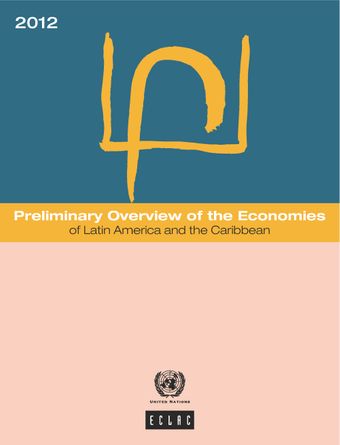Outlook for 2013

- Author: United Nations
- Main Title: Preliminary Overview of the Economies of Latin America and the Caribbean 2012 , pp 45-46
- Publication Date: April 2013
- DOI: https://doi.org/10.18356/4410a192-en
- Language: English Spanish
The economic outlook for Latin America and the Caribbean depends to a large extent on how the world economy evolves in 2013. Significant progress was made in tackling the crisis in the eurozone countries in 2012, with agreements reached on the establishment of an institutional framework for promoting greater fiscal discipline and the formation of a single banking supervisor. The process of adopting and implementing these reforms in each country is complex and time-consuming. In the short term, the policy shift at the European Central Bank strengthened sovereign debt liquidity and succeeded in stabilizing this market, but problems of public debt sustainability persist. Moreover, borrowing requirements are expected to continue to rise in 2013, and will be exacerbated by the economic downturn. Although the adjustment processes have reduced the external disequilibria, in some cases the lack of competitiveness, an underlying, long-term problem and a key trigger of the crisis, remains to be resolved. Lastly, while some advances have been made, the challenge remains to restore financial system solvency and improve portfolio quality, which is a prerequisite for reviving the credit market. Recent studies suggest that this could start to occur in 2014.1 In this context, the most likely scenario for 2013 is that Europe will continue to experience low growth with some countries even remaining in recession.
© United Nations
ISBN (PDF):
9789210560108
Book DOI:
https://doi.org/10.18356/72c59eb5-en
Related Subject(s):
Economic and Social Development
Sustainable Development Goals:
-
From This Site
/content/books/9789210560108c005dcterms_title,dcterms_subject,pub_keyword-contentType:Journal -contentType:Contributor -contentType:Concept -contentType:Institution105
/content/books/9789210560108c005
dcterms_title,dcterms_subject,pub_keyword
-contentType:Journal -contentType:Contributor -contentType:Concept -contentType:Institution
10
5

